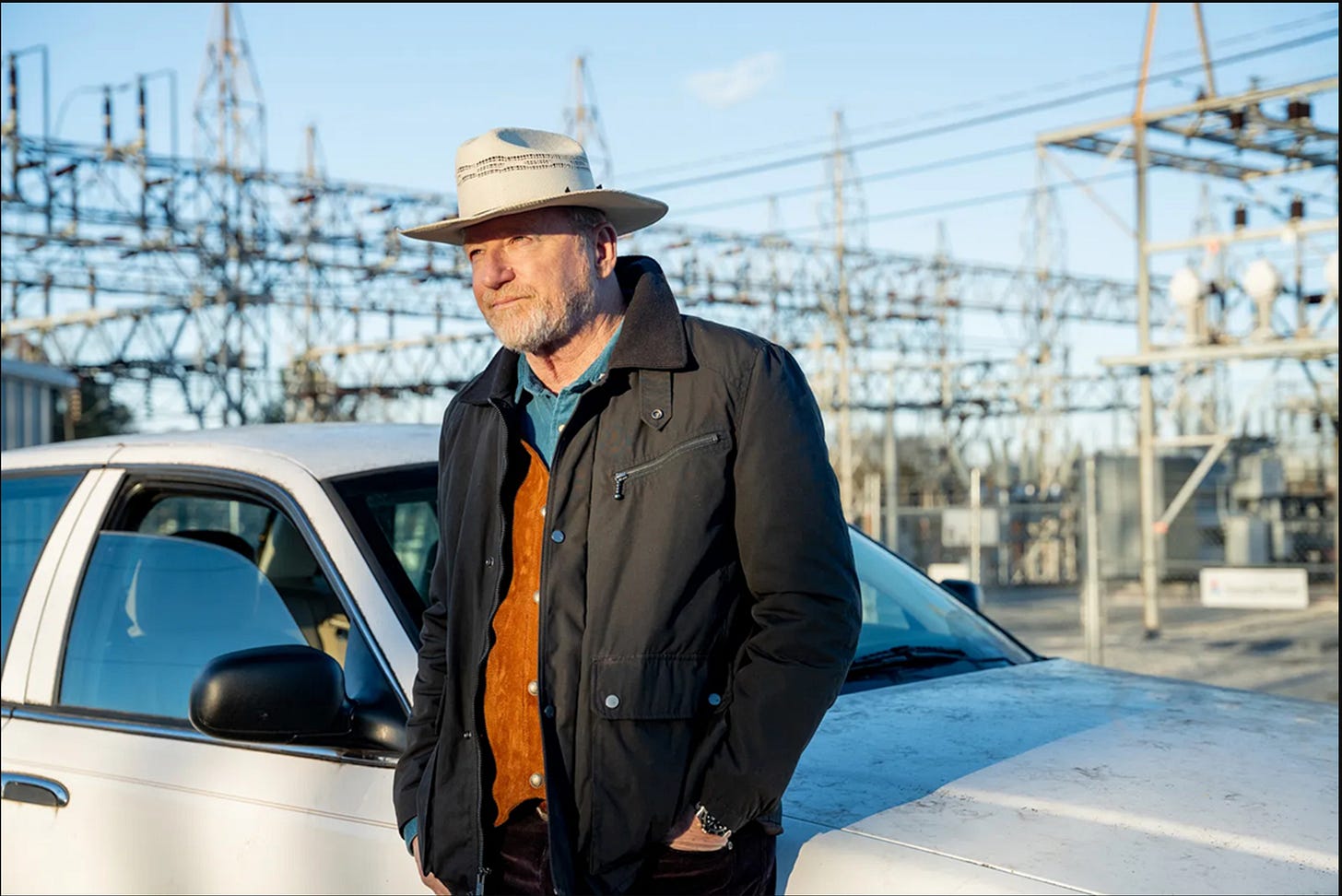David Lowery, frontman and co-founder of Camper Van Beethoven and Cracker, is a storytelling songwriter, akin to a Santa Cruz Americana version of Ray Davies. Explore either band’s back catalog, and you’ll find songs populated with shady characters, unreliable narrators, and complex figures.
Consider the sketchy bum in Camper Van Beethoven’s “When I Win the Lottery,” who sings, “Robbed a liquor store to make myself at home a few times, borrowed myself a car when I needed it.”
Or the man-child in Cracker’s “How Can I Live Without You,” pleading with his ex-girlfriend to stay for selfish reasons, culminating in the chorus, “‘How can I live without you if it means I gotta get a job?’”
Camper Van Beethoven’s New Roman Times elevated storytelling to a concept album, following an ex-soldier protagonist who joins a resistance group called the CVB. There was so much story (and backstory) here that I turned it into a novel of the same name with Lowery’s blessing.
Perhaps it was inevitable that Lowery would eventually write about the character he knows best: himself. What began a few years ago as limited-run CDs has now been compiled into a 28-song autobiographical album called Fathers, Sons and Brothers, out on May 30th. Stream two tracks on Spotify or Apple Music. And check out the title track below.
The album’s strength lies in its universal appeal—it’s thoroughly enjoyable even for those unfamiliar with Lowery. Unlike most rock memoirs (with Dean Wareham’s Black Postcards as a rare exception), it sidesteps the clichéd four-act trope: humble beginnings, rise to superstardom, dramatic downfall, and redemption which the obligatory plug for a new album or tour.
Fathers, Sons and Brothers is chronological and impressionistic. It’s a moving portrait starting in England with stops in Spain, the Inland Empire, Sweden, Richmond and beyond which makes sense for a touring musician. The album is largely acoustic which contributes to the album’s intimate feel and sense of introspection.
It’s heartbreaking, unflinching and funny—sometimes in the same song. “Disneyland Jail,” begins as a hilarious tale of tripping on mushrooms and ending up in Disneyland’s private holding cell for miscreant teens. Yet its final verses shift to a sobering warning for his sons: don’t repeat dad’s reckless mistakes, as he was lucky to live to tell the tale.
Sometimes you feel as if you are in the room witnessing these moments. One of the most poignant examples is “Vending Machine,” where an actual vending machine becomes a metaphor for a higher power at an AA meeting Lowery attends. I can’t think of any album in recent memory that recounts a someone’s life with such raw detail.
Lowery reworks songs from Camper Van Beethoven and Cracker—”Sunrise in the Land of Milk and Honey,” “Darken Your Door,” and the album’s closer, “Beautiful”—with altered lyrics to fit the album’s narrative. The standout revisit is the title track, “Fathers, Sons and Brothers,” featuring The BellRays—a woozy, bluesy summation of the album’s themes. It ties the work together with equal parts sageness and Lowery’s signature snark:
“Every man is someone’s father, brother or son. Live like this and you will be infinitely less an asshole.”
It’s Zen as shit. And it doesn’t hurt that the guitar and organ solos are face melting. Biography or not, it’s still rock n’ roll.




